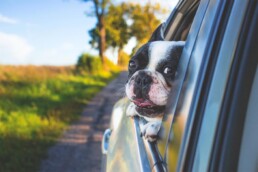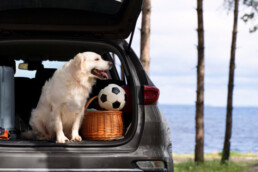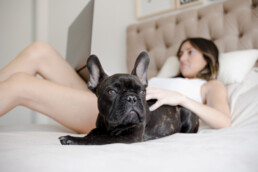Return from holidays = return to daily habits

Holidays are over and even last minute travelers return to their homes and duties (return from the holidays = return to daily habits). The rest period is over and re-adapting to the rhythms of daily life might be a little difficult. Also our animals will be stressed by getting back and getting used again to the owner’s busy life and rules, as well as inactivity time waiting until the owner comes back home.
In addition, the arrival of Autumn – as any other change of season – will bring stress both to us and to our four-legged friends. The change of eating habits, lifestyle and location cause a considerable psycho-physical stress in animals and this might affect their general state of health.
The oxidative stress is related to the aging process and is recognized to be the cause of many age-related degenerative diseases. The formation of free radicals, however, is part of the normal cellular oxidative metabolism in animals; in fact the redox reactions that take place within the mitochondria of the cell generate molecules called free radicals. These molecules are highly unstable because they lack an electron and in order to reach their stability, they attack any other molecule to seize the missing electron. When this occurs the “robbed” molecule becomes also a free radical and so the cycle begins again and is self-feeding. The body has specific defenses to block this chain reaction, neutralizing radicals before they attack cells and cause damage to their structures. The antioxidants can be produced both at the organic level and be taken in with a diet. Among the antioxidants we count catalase, glutathione, superoxide dismutase and vitamins such as vitamin E and vitamin C. In the cellular environment the two vitamins are a powerful antioxidant complex, which acts synergistically increasing the positive effects of the two molecules. Vitamin E in fact binds to fats and protects especially the cell membrane having hydrophobic nature, while vitamin C remains dissolved in the liquid cell regenerating the depleted vitamin E. These important vitamins are normally taken with food and their supplementation is crucial during stress periods, when the defenses of the body may be prevaricated by an increased production of free radicals, whose excess would alter the homeostasis of the body.
Small precautions can help make the animals less stressed:
- Their bath time could be a good opportunity to make them anti-stress cuddles and to make a little domestic check-up to detect their health status: opacity of their hair, integrity of their skin, the state of their mantle and the presence of rashes, wounds or parasites.
- Keep our four-legged friends busy while the owners are away is important and it can be done by hiding some mouth-watering prizes, as if they were in a treasure hunt.
Share
Related posts
Holiday with 4-leggend friends
What measures should you take to plan a top holiday with your…
Can we pass the stress on to our dog?
According to a study conducted by Linköping University in…

